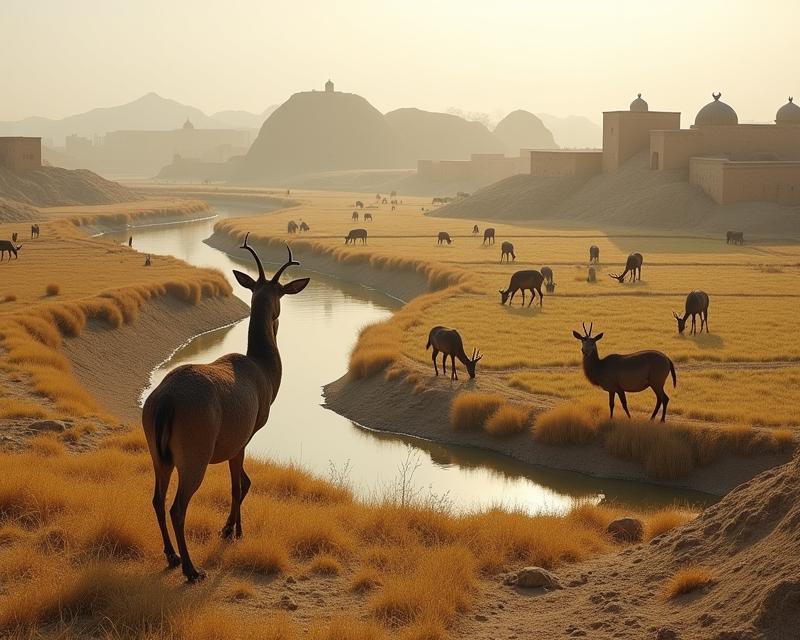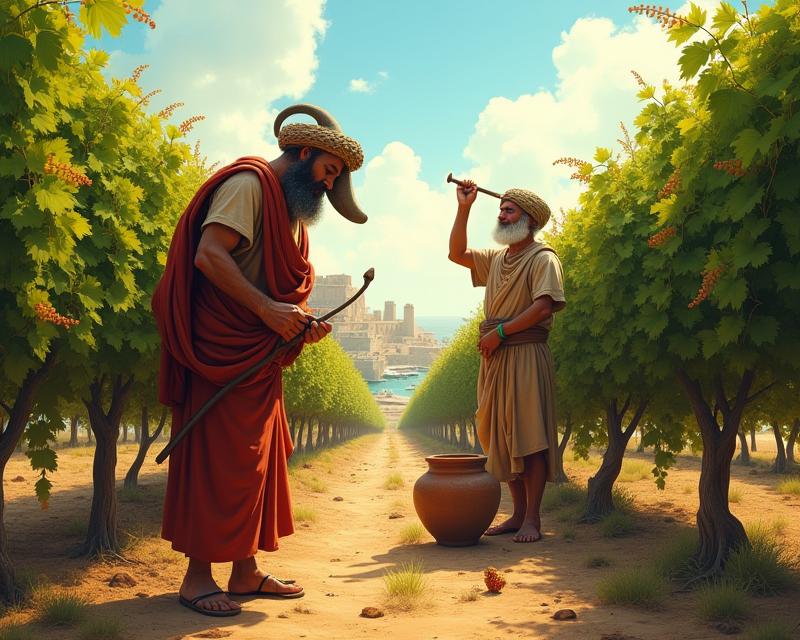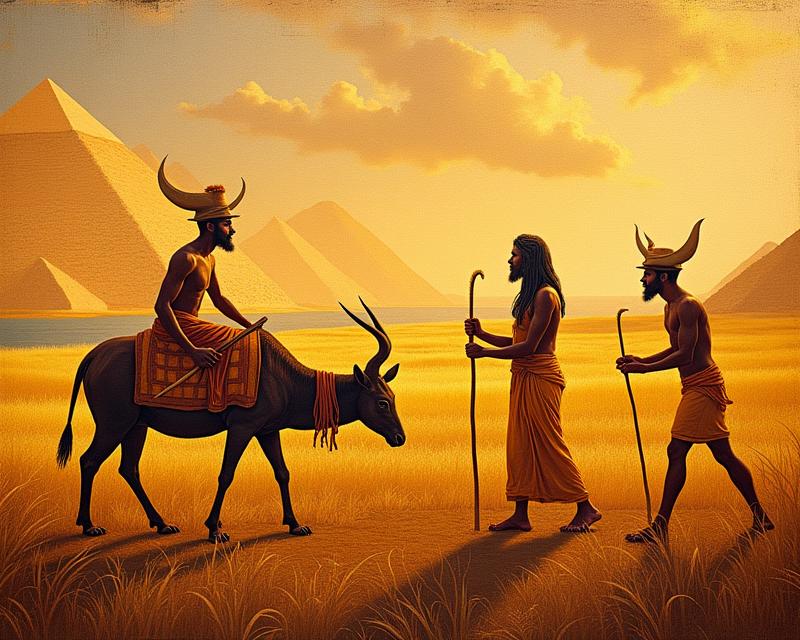Ancient Farming: The Harappan Legacy
Publish in Agriculture el 23/07/2025 17:01
Ancient Farming: The Harappan Legacy
Hey everyone! Ever wonder where our farming roots really lie? While we often think of modern techniques, it's fascinating to look back at ancient civilizations and see how they tackled the challenges of food production. Today, we're diving into the agricultural practices of the Harappan civilization, one of the earliest urban societies in the Indus Valley (modern-day Pakistan and northwest India). Their ingenuity offers valuable insights, even for us today!

The Harappan civilization flourished from around 3300 to 1700 BCE, and they were remarkably advanced for their time. Their success was largely built on sophisticated agriculture. Unlike some early societies that relied solely on hunting and gathering, the Harappans were skilled farmers. They cultivated a wide variety of crops, including wheat, barley, peas, lentils, sesame, and cotton. Evidence suggests they also grew rice, though its prevalence is debated. They weren't just planting seeds randomly either! They understood irrigation and drainage, crucial for successful harvests. They built canals, reservoirs, and wells to manage water resources, a practice we still rely on today. This careful planning allowed them to support a large population in a region with varying rainfall patterns.
The Harappans employed a range of farming techniques. They used ploughs, likely pulled by oxen or other draft animals, to prepare the soil. While the exact design of these ploughs is still debated, archaeological finds indicate their use. They also practiced crop rotation, which helps maintain soil fertility. Furthermore, they developed sophisticated storage facilities, including granaries, to protect their harvests from pests and spoilage. This foresight ensured a stable food supply, a cornerstone of their societal development. The abundance of agricultural surplus allowed for specialization of labor – meaning not everyone had to be a farmer! This led to the development of crafts, trade, and complex social structures.
So, what happened to this thriving agricultural system? Around 1700 BCE, the Harappan civilization began to decline. The reasons for this decline are still debated among historians and archaeologists. Possible factors include climate change (shifts in monsoon patterns), environmental degradation (over-irrigation leading to salinization of the soil), and possibly even invasions. Whatever the cause, the decline of the Harappan civilization marked the end of a remarkable era of agricultural innovation. However, their legacy lives on. Their understanding of irrigation, crop management, and sustainable practices provides valuable lessons for us today as we face the challenges of feeding a growing global population and protecting our precious resources. By studying their successes and failures, we can learn to build more resilient and sustainable agricultural systems for the future. It’s a reminder that even ancient civilizations faced similar challenges to those we face now, and their solutions, even in their incomplete form, can offer valuable guidance.
- Irrigation Systems: Canals, reservoirs, and wells
- Crop Rotation: Maintaining soil fertility
- Ploughs: Early forms of soil preparation
- Storage Facilities: Protecting harvests





